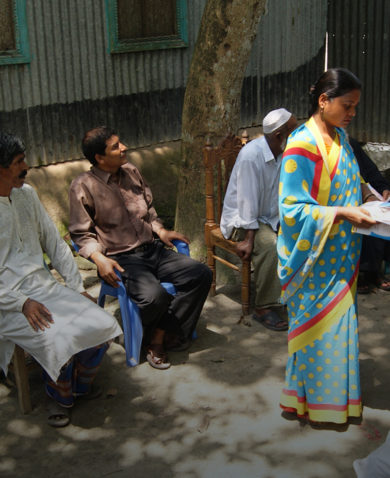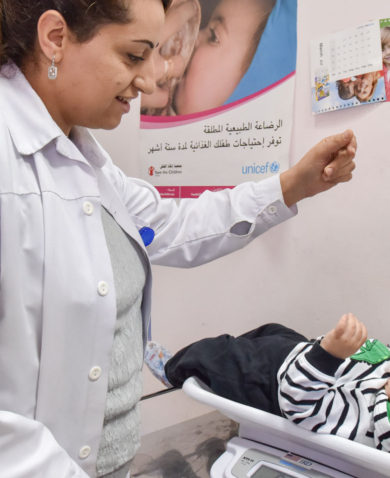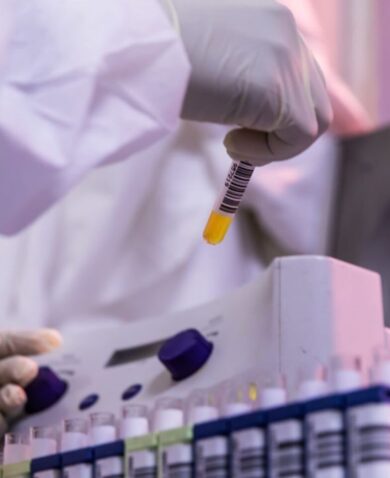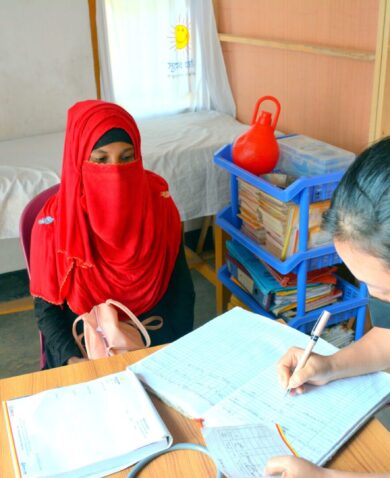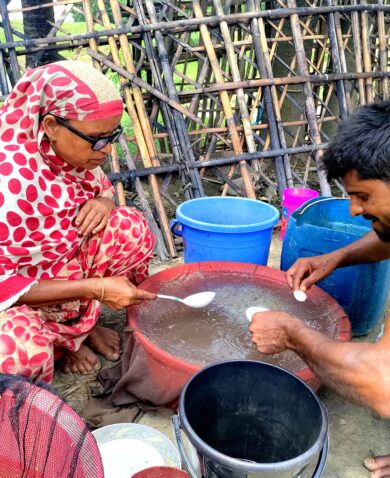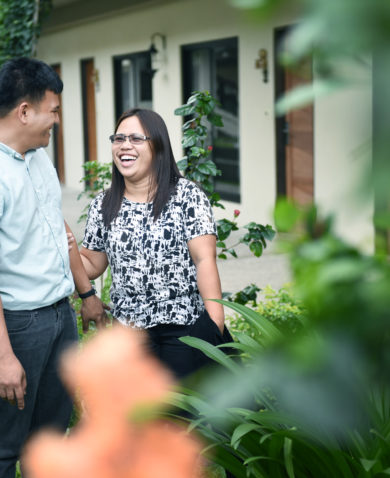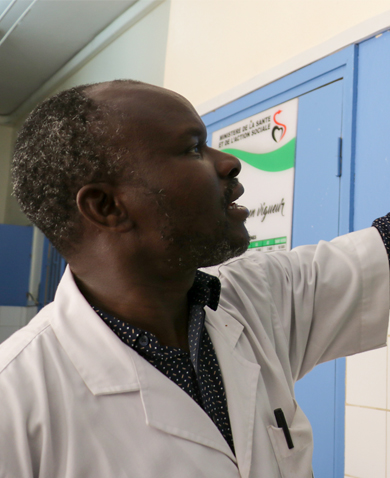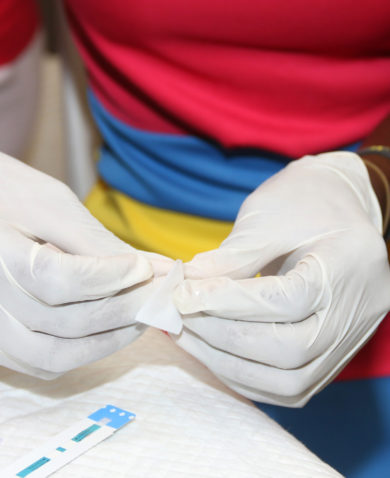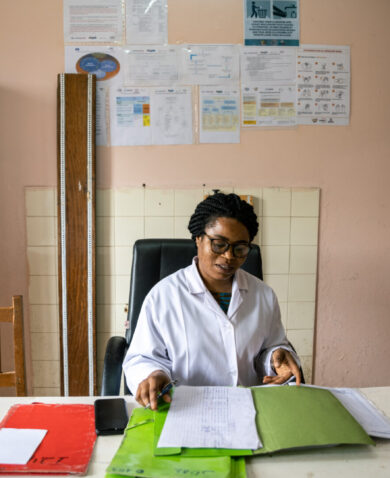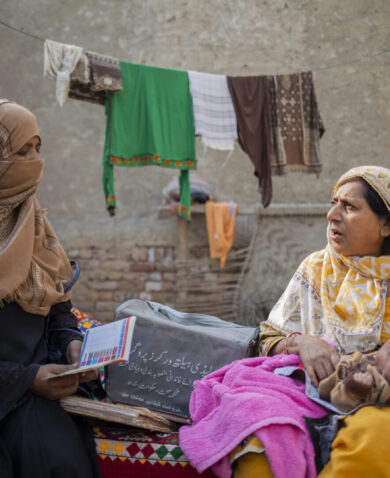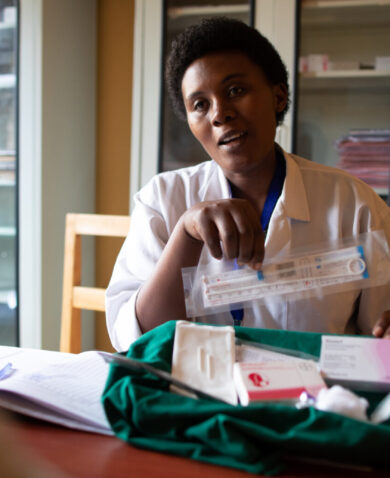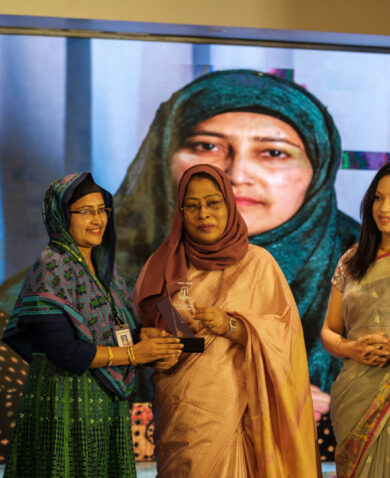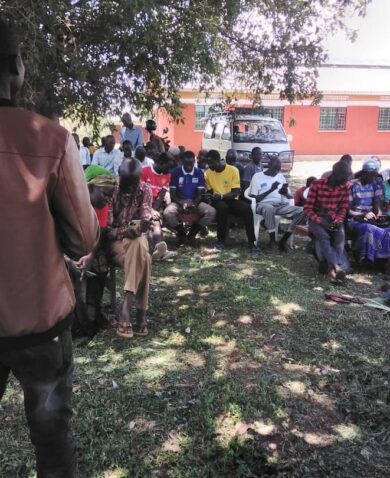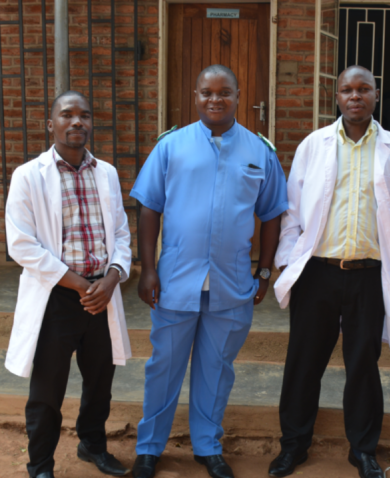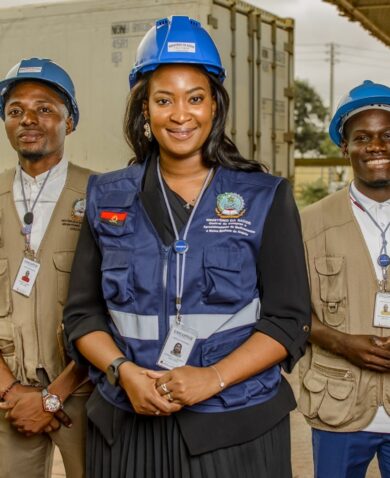
3 Questions with COVID-19 Coordinator Dr. Monique N’Guessan: Charting a Course for Côte d’Ivoire
September 17, 2020 | 4 Minute ReadMany shortcomings have been highlighted in the management of COVID-19. Leveraging technology and coordinating among multi-sector health professionals will be critical as we overcome the effects of the pandemic.

This post was adapted from a post that originally appeared on the USAID HRH2030 program’s website.
As the COVID-19 coordinator for the USAID Human Resources for Health in 2030 (HRH2030) program in Côte d’Ivoire, Dr. Monique N’Guessan explains the effects of the pandemic in Côte d’Ivoire and the measures being taken to move the country forward.
1. Paint a picture for us. How is the COVID-19 pandemic playing out in Côte d’Ivoire at the moment?
COVID-19 was first diagnosed in Côte d’Ivoire on March 12 and the situation has been constantly evolving. As of July 3, 2020, the country had registered 10,244 confirmed cases, with 5,448 active cases, 4,726 survivors, and 70 deceased. The current situation is very worrying because there has been a shift from imported cases—meaning those ill with COVID came to Côte d’Ivoire from other places—to community transmission—so it is now spreading locally, despite the measures taken by the government to control the pandemic.
In response, the government of Côte d’Ivoire created an operational monitoring committee for the fight against COVID-19. The committee is made up of nine sectoral operational coordination units and key actors. Working with USAID technical implementing partners, the committee organizes and synthesizes a range of essential community services, including testing, containment and epidemiological surveillance, medical care, hygiene, health security, burials, and pharmaceutical stock management and distribution.
The committee has taken several measures to raise awareness and disseminate information on preventive measures, systematic detection of suspicious cases with quarantine or containment, and management of confirmed cases. They have ensured that both public and private laboratories are permitted to process samples for COVID-19 diagnosis to support the already-existing reference laboratory; opened 13 screening centers for each of the communities in greater Abidjan, which has 95 percent of the confirmed cases in the country; and worked alongside centers for the management of COVID-19 cases so they are as close as possible to hotspots or virus clusters. There has also been an increase in the number of COVID-19 beds in public and private facilities for the treatment of severe or complicated cases. Rapid intervention teams to follow up suspicious cases at home and tracer teams to search for contacts of contaminated persons have been established as well.
Despite these efforts and safety measures—wearing of masks in public places, hand washing several times a day, social distancing, and the isolation of greater Abidjan—the number of cases is increasing daily. Currently, protective measures are unfortunately not often being followed by most citizens.
In the context of this health crisis, health personnel are encountering difficulties. In normal times, Côte d’Ivoire suffers from a deficit of health workers, 20 physicians per 100,000 people, and in the management of a pandemic, the gap widens. Health workers also lack protective equipment. Overall resuscitation capacity is very weak in public and private health facilities across the country. Our efforts thus far have not been sufficient in view of the constantly increasing number of cases.
2. What are some activities HRH2030 is undertaking to strengthen the country’s health system in the fight against COVID-19?
HRH2030 is supporting Côte d’Ivoire by strengthening human resources for health, coordinating the various committees involved in the management of the health crisis, and also in raising awareness about the disease and prevention measures amongst veterinary professionals and students engaged in One Health Clubs at their universities.
Some of the project’s planned activities include supporting the monthly meetings for the evaluation of pandemic management activities to identify the strengths and weaknesses of the COVID-19 response.
Management improvements to the emergency operations and establishment of a network and public and private laboratories for COVID-19 diagnosis will be proposed as well. We’re also validating documents developed by the operational monitoring committee about infection prevention and control and providing computer equipment for a surveillance system to enable the availability and accessibility of surveillance data. Along with these, awareness building among health workers, veterinarians, students, communities, and multi-sector health professionals will be critical to increase understanding of the importance of respecting and implementing protective measures against COVID-19.
3. How do you foresee Côte d’Ivoire’s health system will be changed in the years ahead because of this pandemic?
Throughout this crisis, the health system has been experiencing significant challenges, especially in terms of coordination, and the inadequacies of various sectors of the health system are being exposed.
The support provided by HRH2030 will be useful in three key ways: harmonizing management procedures between laboratories; promoting teamwork and the implementation of the One Health platform with effective collaboration for the management of future infections; and strengthening the role of the committee to synchronize field interventions and increase the availability of data to inform decision-making.
More generally speaking, in the field at COVID-19 centers for case management, IT tools have become essential with georeferenced applications and data for monitoring cases. It is my hope that the use and integration of technology will become widespread to continue supporting our health system after the pandemic, so that we may continue to have accessible and reliable data for the prevention and control of emerging diseases.
In terms of coordination between the various health structures (diagnostic laboratory, patient care, and epidemiological monitoring), many shortcomings have been highlighted in the management of the health crisis, so I hope that those responsible for these structures will seek to meet the challenges head-on and work to remedy the deficiencies with support from partners.
*Banner image caption: Shutterstock.com
Posts on the blog represent the views of the authors and do not necessarily represent the views of Chemonics.







